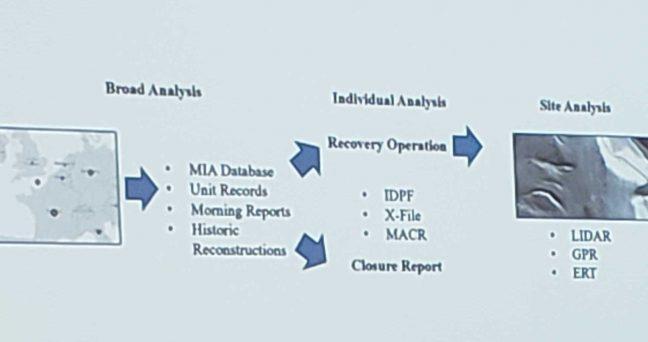The University of Wisconsin is advocating for Senate Bill 446 to provide funding for research to find and identify Wisconsin soldiers who are missing.
Torrey Tiedeman, the communications and outreach coordinator of the Missing in Action Recovery and Identification project, said the purpose of the project is to advance the recovery of missing-in-action service members from overseas by using different practices and student volunteers across the UW system.
According to the project’s website, it brings together four scholarly disciplines: history, archaeology, forensic anthropology and genetic analysis. These areas work together to survey sites and exhume and identify remains. These teams are composed of students, researchers, student veterans, alumni and volunteers.
The researchers specializing in archaeology and genetics have been working with the United States Department of Defense since 2013 to identify missing U.S. soldiers, according to AP News.
State lawmakers sign bill to fund UW project to find missing soldiers
State Sens. Roger Roth, R-Appleton, and Dale Kooyenga, R-Brookfield, and state Reps. Ken Skowronski, R-Franklin, and Christine Sinicki, D-Milwaukee, are the lead authors on the bill. It will provide $360,000 to the project over the next two fiscal years if passed.
Tiedeman said that since 2014, the project has found and identified three soldiers, all of whom were killed in France during World War II. These recovery missions are assigned to the UW MIA-RIP and funded by the DOD, according to AP.
Angela Roidt, communications director for Roth, wrote in an email that some projects can cost $1.5 million and take up to two years to complete, and due to the success of its past missions, the U.S. Department of Defense began partnering with similar programs throughout the country.
“The DOD has not assigned the team any Wisconsin MIA cases, which is why the state is helping with this bill,” Roidt wrote.
Charles Konsitzke founded the project and is the team leader. Konsitzke is also the associate director for the UW Biotechnology Center, which hosts the projects. He said he started this project because a civilian asked UWBC to help them find a missing soldier. Konsitzke said he doesn’t have personal connections to any missing-in-action soldiers, but he did come from a military family. He said he felt motivated from witnessing how academics can further the search for soldiers.
Roth is a lead author on the bill and circulated it for support among his legislative colleagues in the senate and the assembly. Twenty-seven state senators and 61 representatives have signed onto SB 446 since its introduction Sept. 23.
Roidt wrote in an email that Wisconsin has 1,500 missing-in-action service members of the 82,000 nationwide.
“Families all over the state are missing their loved ones without the closure of knowing what happened to them,” Roidt wrote.
Roidt also wrote that Roth served four tours in the Middle East. He was deployed in support of Operation Enduring Freedom and three times in support of Operation Iraqi Freedom. Roth is a military officer in the Wisconsin Air National Guard holding the rank of first lieutenant. Roth’s military experience allows him to understand the sacrifice of those who serve, as well as their families, made for our freedom.
“It is our duty to give every effort and attempt to bring their remains back home to their families,” Roidt wrote.
The bill will benefit both the Wisconsin missing-in-action soldiers and their families at a lower cost and with greater effectiveness because of the resources UW would have access to. Roidt wrote that with the increase in funding under the bill, the project “could conduct recovery missions in areas of the world that are off limits to DOD missions.”
Wisconsin has led the nation on missing-in-action recovery projects. With this bill, Wisconsin could become the first state in the nation to fund the project’s mission, Roidt wrote.
This project has worked closely with the Defense Prisoners of War/Missing in Action Accounting Agency since 2016.
“[The project] is tasked with recovery missions from the Defense POW/MIA Accounting Agency,” Tiedeman said.
The DPAA provides the UW project available information on the case, equipment and some of their own personnel.
Tiedeman has a military background. He said the project has enabled him to “continue serving without being in the military.”


















